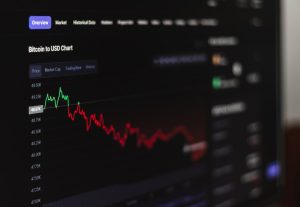Avoiding Common Mistakes When Using a Compound Calculator for Forex
Forex trading is a complex and dynamic market that requires careful analysis and strategy. Traders often use various tools and resources to help them make informed decisions and manage their investments effectively. One such tool is a compound calculator, which can be a valuable asset for traders looking to maximize their profits over time. However, using a compound calculator for forex trading can be tricky, and there are several common mistakes that traders should avoid to ensure accurate and beneficial results.
The compound calculator is a tool that helps traders calculate the potential returns on their investments based on a compounding strategy. Compounding is a powerful concept in forex trading, where profits are reinvested to generate more profits over time. By using a compound calculator, traders can determine the future value of their investments and adjust their trading strategies accordingly.
While the compound calculator can be a useful tool, it is important to use it correctly to avoid potential pitfalls. Here are some common mistakes that traders should be aware of and avoid when using a compound calculator for forex trading:
1. Neglecting to consider the risks: A compound calculator assumes that the trader will consistently generate profits without any losses. However, forex trading is inherently risky, and losses are inevitable. Traders should be realistic and factor in potential losses when using a compound calculator. It is essential to include a risk management strategy and consider the possibility of drawdowns to ensure accurate calculations.
2. Failing to account for transaction costs: Forex trading involves various transaction costs, including spreads, commissions, and swap fees. These costs can significantly impact the overall profitability of a trading strategy. Traders should include these costs in their calculations to obtain a realistic estimation of their potential returns. Neglecting to consider transaction costs can lead to overestimating profits and making poor investment decisions.
3. Not adjusting for changing market conditions: Forex markets are highly volatile and subject to constant fluctuations. Traders must adapt their strategies to changing market conditions to maintain profitability. A compound calculator assumes a constant rate of return, which may not accurately reflect the real-world market conditions. Traders should regularly review and adjust their calculations based on the current market trends and adjust their trading strategies accordingly.
4. Overestimating the rate of return: It is essential to be realistic when using a compound calculator. Traders may often be tempted to input high rates of return to see impressive results. However, it is crucial to base the calculations on historical data and realistic expectations. Overestimating the rate of return can lead to unrealistic profit expectations and potential disappointment when the actual results do not match the calculations.
5. Failing to account for compounding frequency: The compounding frequency plays a significant role in calculating the potential returns. Traders should ensure that they input the correct compounding frequency into the calculator to obtain accurate results. Compounding more frequently can lead to higher returns, while less frequent compounding may result in lower profits. Traders should be aware of the impact of compounding frequency and adjust it based on their trading strategy.
In conclusion, a compound calculator can be a valuable tool for forex traders looking to maximize their profits over time. However, it is crucial to use the calculator correctly and avoid common mistakes that can lead to inaccurate results. Traders should consider the risks, transaction costs, changing market conditions, and be realistic with their rate of return expectations. By avoiding these common mistakes, traders can harness the power of a compound calculator effectively and make informed trading decisions in the forex market.


